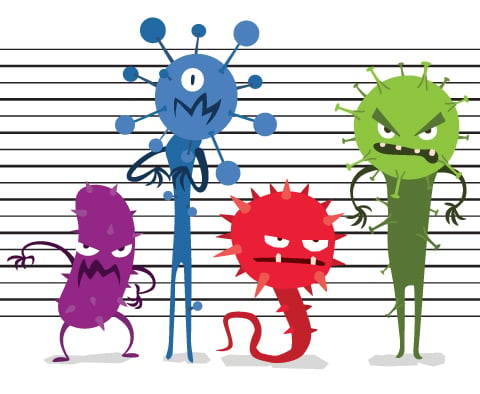Interstitial cystitis (IC)
IC is a chronic condition that can cause frequent urination, bladder pressure and pain, and sometimes pain in the pelvis. This pain can be anywhere from mild to severe. Your symptoms may vary over time, and flare up when you’re stressed, during or after sexual activity, after eating certain foods, or if you’ve been sitting for a long time.
Also called “bladder pain syndrome,” IC is estimated to affect between 3 million and 8 million women and between one million and four million men in the United States alone.
Scientists don’t know exactly what causes IC, but many factors probably contribute. That’s why testing is so important. IC symptoms are caused by bladder inflammation, but many of the symptoms are similar to a urinary tract infection (UTI). Doctors need to rule out a UTI to treat you appropriately for IC.
It’s also possible to get a UTI in addition to IC, which could make your symptoms worse. Treating the UTI with the appropriate antibiotic or antifungal can then help you feel better.
IC Symptoms
IC symptoms vary from person to person, and your own symptoms can vary over time.
Common IC symptoms include:
- Pain in the pelvis in women
- Pain between the scrotum and anus in men
- Urgent, persistent need to urinate
- Frequent urination throughout the day
- Pain or discomfort in the bladder before urinating, and relief after
- Pain during or after sex
MicroGenDX Test Used in Diagnosing IC
An important step in diagnosing IC is to make sure your symptoms aren’t caused by a UTI and that you don’t have a UTI in addition to IC.
An evaluation and culture (growing microbes from your sample in a lab) are often used to diagnose UTIs. However, standard cultures may come back negative even when you actually do have an infection, and that means your infection won’t be treated. A MicroGenDX test detects the DNA of all microbes in your sample, along with how much of each is present, and uses that information to identify causes of your infection and the drugs that can best treat it. It is important to know that not all antibiotics work for all bacteria, and some even work differently in different areas of the body. The same is true for antifungals. Your doctor should consult the "antimicrobials for consideration" chart on your MicroGenDX report to decide what antibiotic or antifungal is right for you.
You can order the “UroKEY” test and get complete instructions here:
https://microgendx.com/product/uti-urinalysis-test-service-dm-intl/
If the MicroGenDX test comes back negative for any infection-causing bacteria or fungi (yeast), then your doctor will know that your symptoms are not caused by a UTI. This is critical, because if you do have a UTI and the cause isn’t detected, as can happen with standard culture tests, then your infection won’t be treated and all of your symptoms may inappropriately be attributed to IC.
In addition to the MicroGenDX test, your doctor may also order a cystoscopy (and possibly a biopsy as part of that test).
Providing a Sample for the Test to Rule Out UTI
You will need to provide a urine sample for the UTI test. It’s very important to obtain a proper sample by following the instructions for collecting the sample, as well as when packaging and shipping it.
Everything you need to know about taking a sample is included with your test, and is also available online on the product page. The instructions contain illustrations that will help you collect a sample without contaminating it. For example, you will need to wash your hands thoroughly and clean your genital area with soap and water so that bacteria on the skin aren’t included in your sample.
Medical Specialties That Treat IC
IC can be treated by a urologist or urogynecologist.
How ICs are Treated
If MicroGenDX testing detects microbes that could be causing a UTI, prostatitis, or other infection, then the test report will indicate antibiotics or antifungals for your doctor to consider prescribing to you, and the infection will be treated first. It is important to complete the full course of medication as it is prescribed, even when symptoms begin to clear up before you are treated.
Some bacteria that cause UTIs can develop resistance to specific antibiotics, so that they cannot be effectively treated with those antibiotics. This is why all MicroGenDX diagnostic tests include detection of antibiotic resistance genes in your sample, and then provide alternative antibiotics for your doctor to consider prescribing to you.
If testing has ruled out a UTI, prostatitis, or other infection that can cause similar symptoms, your doctor may suggest lifestyle changes, pelvic exercises, or medications. These treatments won’t cure IC (there is no known cure), but they can relieve pain and make you feel better, sometimes for long periods of time.
Lifestyle changes will include avoiding potential pain triggers such as tobacco, alcohol, foods with a high potassium content, and spicy foods, as well as reducing physical and mental stress.
Your doctor may show you bladder training exercises, or suggest a physical therapist who can teach them to you.
If none of these treatments work, surgery may be recommended as a last resort.
References
- https://www.niddk.nih.gov/health-information/urologic-diseases/interstitial-cystitis-painful-bladder-syndrome/definition-facts
- https://www.merckmanuals.com/professional/genitourinary-disorders/voiding-disorders/interstitial-cystitis
- https://www.mayoclinic.org/diseases-conditions/interstitial-cystitis/symptoms-causes/syc-20354357

